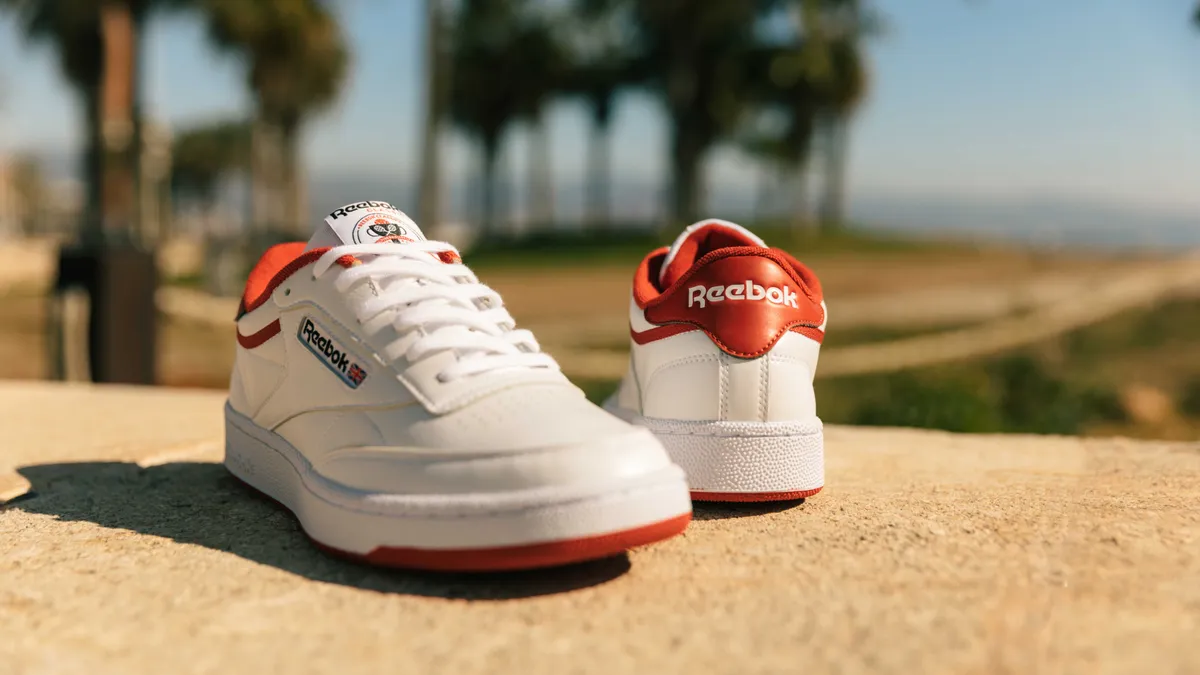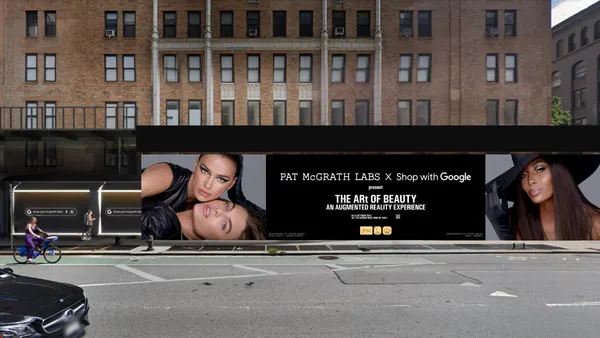Editor's note: To read Retail Dive's in-depth profile on Reebok, click here.
Dive Brief:
-
After months of speculation, Adidas announced it would sell Reebok to Authentic Brands Group for 2.1 billion euros ($2.46 billion), with the majority to be paid in cash. The brand conglomerate had reportedly made a $1 billion bid for the company in the spring.
-
Authentic Brands plans to maintain Reebok's footprint "across retail, wholesale and e-commerce channels," according to a statement emailed to Retail Dive. The deal is expected to close in the first quarter of 2022.
-
Adidas bought Reebok in 2006 for $3.8 billion, about $1.34 billion more than it is now being sold for. The company first announced it would divest Reebok in February.
Dive Insight:
Reebok has struggled under Adidas since the sports giant acquired it. Previously a sports generalist, the brand shrunk under Adidas to focus on the fitness and athletics side of the market, which analysts say was the result of not wanting the two brands to compete with each other.
While Reebok President Matt O'Toole told Retail Dive earlier this year that a sale could open an opportunity for Reebok to expand again into other sports categories, Authentic Brands stayed focused on the brand's fitness positioning in its statement.
"We've had our sights set on Reebok for many years, and we're excited to finally bring this iconic brand into the fold," Jamie Salter, founder and CEO of Authentic Brands, said in a statement. "Reebok not only holds a special place in the minds and hearts of consumers around the world, but the brand also has expansive global distribution."
The brand conglomerate praised Reebok's "rich and storied fitness heritage" and "deep ties to professional sports and pop culture." The move also puts Reebok back in touch with Shaquille O'Neal, who the brand signed in the '90s while trying to make a name for itself in basketball. O'Neal, an owner of Authentic Brands, called the acquisition of Reebok a "dream come true."
While much smaller now, Reebok was once beating out Nike, and its demise is often, at least partially, attributed to the Adidas acquisition, which pigeon-holed the brand into a smaller market and limited its growth opportunities. With the sale, there is a chance for Reebok to enter new markets without the restrictions that have dogged it over the years.
"Reebok has been a valued part of adidas, and we are grateful for the contributions the brand and the team behind it have made to our company," Kasper Rorsted, CEO of Adidas, said in a statement. "With this change in ownership, we believe the Reebok brand will be well-positioned for long-term success. As for adidas, we will continue to focus our efforts on executing our 'Own the Game' strategy that will enable us to grow in an attractive industry, gain market share, and create sustainable value for all of our stakeholders."
Long-time employees of Reebok are hopeful that moving out of the shadow of Adidas will mean a new dawn for the Reebok brand — and possibly, the chance to reach No. 1 again.
"Reebok was once the number one company. What's to stop it happening again? They have the taste of being at the top. We have the product that can get to the top, so now's the opportunity," Reebok founder Joe Foster told Retail Dive earlier this year. "I think Reebok has helped [Adidas] to grow. I think now it's: Don't stand in the way. Let Reebok have a go."















